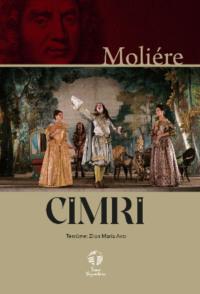 полная версия
полная версияThe Blunderer
MASC. Ah, Signor Zanobio Ruberti. How glad you ought to be for what Heaven sends you!
LEL. That is your real name; the other is assumed.
TRUF. But where did he tell you he first saw the light?
MASC. Naples seems a very nice place, but you must feel a decided aversion to it.
TRUF. Can you not let us go on with our conversation, without interrupting us?
LEL. Naples is the place where he first drew his breath.
TRUF. Whither did I send him in his infancy, and under whose care?
MASC. That poor Albert behaved very well, for having accompanied your son from Bologna, whom you committed to his care.
TRUF. Pshaw!
MASC. (Aside). We are undone if this conversation lasts long.
TRUF. I should very much like to know their adventures; aboard what ship did my adverse fate…?
MASC. I do not know what is the matter with me, I do nothing but yawn. But, Signor Trufaldin, perhaps this stranger may want some refreshment; besides, it grows late.
LEL. No refreshment for me.
MASC. Oh sir, you are more hungry than you imagine.
TRUF. Please to walk in then.
LEL. After you, sir.
[Footnote: It shows that Lelio knows not what he is about when he does the honours of the house to the master of the house himself, and forgets that as a stranger he ought to go in first.]
MASC. (To Trufaldin). Sir, in Armenia, the masters of the house use no ceremony. (To Lelio, after Trufaldin has gone in). Poor fellow, have you not a word to say for yourself?
LEL. He surprised me at first; but never fear, I have rallied my spirits, and am going to rattle away boldly..
MASC. Here comes our rival, who knows nothing of our plot. (They go into Trufaldin's house).
SCENE IV. – ANSELMO, LEANDER
ANS. Stay, Leander, and allow me to tell you something which concerns your peace and reputation. I do not speak to you as the father of Hippolyta, as a man interested for my own family, but as your father, anxious for your welfare, without wishing to flatter you or to disguise anything; in short, openly and honestly, as I would wish a child of mine to be treated upon the like occasion. Do you know how everybody regards this amour of yours, which in one night has burst forth? How your yesterday's undertaking is everywhere talked of and ridiculed? What people think of the whim which, they say, has made you select for a wife a gipsy outcast, a strolling wench, whose noble occupation was only begging? I really blushed for you, even more than I did for myself, who am also compromised by this public scandal. Yes, I am compromised, I say, I whose daughter, being engaged to you, cannot bear to see her slighted, without taking offence at it. For shame, Leander; arise from your humiliation; consider well your infatuation; if none of us are wise at all times, yet the shortest errors are always the best. When a man receives no dowry with his wife, but beauty only, repentance follows soon after wedlock; and the handsomest woman in the world can hardly defend herself against a lukewarmness caused by possession. I repeat it, those fervent raptures, those youthful ardours and ecstacies, may make us pass a few agreeable nights, but this bliss is not at all lasting, and as our passions grow cool, very unpleasant days follow those pleasant nights; hence proceed cares, anxieties, miseries, sons disinherited through their fathers' wrath.
LEAND. All that I now hear from you is no more than what my own reason has already suggested to me. I know how much I am obliged to you for the great honour you are inclined to pay me, and of which I am unworthy. In spite of the passion which sways me, I have ever retained a just sense of your daughter's merit and virtue: therefore I will endeavour…
ANS. Somebody is opening this door; let us retire to a distance, lest some contagion spreads from it, which may attack you suddenly.
SCENE V. – LELIO, MASCARILLE
MASC. We shall soon see our roguery miscarry if you persist in such palpable blunders.
LEL. Must I always hear your reprimands? What can you complain of? Have I not done admirably since…?
MASC. Only middling; for example, you called the Turks heretics, and you affirmed, on your corporal oath, that they worshipped the sun and moon as their gods. Let that pass. What vexes me most is that, when you are with Celia, you strangely forget yourself; your love is like porridge, which by too fierce a fire swells, mounts up to the brim, and runs over everywhere.
LEL. Could any one be more reserved? As yet I have hardly spoken to her.
MASC. You are right! but it is not enough to be silent; you had not been a moment at table till your gestures roused more suspicion than other people would have excited in a whole twelvemonth.
LEL. How so?
MASC. How so? Everybody might have seen it. At table, where Trufaldin made her sit down, you never kept your eyes off her, blushed, looked quite silly, cast sheep's eyes at her, without ever minding what you were helped to; you were never thirsty but when she drank, and took the glass eagerly from her hands; and without rinsing it, or throwing a drop of it away, you drank what she left in it, and seemed to choose in preference that side of the glass which her lips had touched; upon every piece which her slender hand had touched, or which she had bit, you laid your paw as quickly as a cat does upon a mouse, and you swallowed it as glibly as if you were a regular glutton. Then, besides all this, you made an intolerable noise, shuffling with your feet under the table, for which Trufaldin, who received two lusty kicks, twice punished a couple of innocent dogs, who would have growled at you if they dared; and yet, in spite of all this, you say you behaved finely! For my part I sat upon thorns all the time; notwithstanding the cold, I feel even now in a perspiration. I hung over you just as a bowler does over his bowl after he has thrown it, and thought to restrain your actions by contorting my body ever so many times.
LEL. Lack-a day! how easy it is for you to condemn things of which you do not feel the enchanting cause. In order to humour you for once I have, nevertheless, a good mind to put a restraint upon that love which sways me. Henceforth…
SCENE VI. – TRUFALDIN, LELIO, MASCARILLE
MASC. We were speaking about your son's adventures.
TRUF. (To Lelio). You did quite right. Will you do me the favour of letting me have one word in private with him?
LEL. I should be very rude if I did not. (Lelio goes into Trufaldin'sHouse).
SCENE VII. – TRUFALDIN, MASCARILLE
TRUF. Hark ye! do you know what I have just been doing?
MASC. No, but if you think it proper, I shall certainly not remain long in ignorance.
TRUF. I have just now cut off from a large and sturdy oak, of about two hundred years old, an admirable branch, selected on purpose, of tolerable thickness, of which immediately, upon the spot, I made a cudgel, about … yes, of this size (showing his arm); not so thick at one end as at the other, but fitter, I imagine, than thirty switches to belabour the shoulders withal; for it is well poised, green, knotty, and heavy.
MASC. But, pray, for whom is all this preparation?
TRUF. For yourself, first of all; then, secondly, for that fellow, who wishes to palm one person upon me, and trick me out of another; for this Armenian, this merchant in disguise, introduced by a lying and pretended story.
MASC. What! you do not believe…?
TRUF. Do not try to find an excuse; he himself, fortunately, discovered his own stratagem, by telling Celia, whilst he squeezed her hand at the same time, that it was for her sake alone he came disguised in this manner. He did not perceive Jeannette, my little god-daughter, who overheard every word he said. Though your name was not mentioned, I do not doubt but you are a cursed accomplice in all this.
MASC. Indeed, you wrong me. If you are really deceived, believe me I was the first imposed upon with his story.
TRUF. Would you convince me you speak the truth? Assist me in giving him a sound drubbing, and in driving him away; let us give it the rascal well, and then I will acquit you of all participation in this piece of rascality.
MASC. Ay, ay, with all my soul. I will dust his jacket for him so soundly, that you shall see I had no hand in this matter. (Aside). Ah! you shall have a good licking, Mister Armenian, who always spoil everything.
SCENE VIII. – LELIO, TRUFALDIN, MASCARILLE
TRUF. (Knocks at his door, and then addresses Lelio). A word with you, if you please. So, Mr. Cheat, you have the assurance to fool a respectable man, and make game of him?
MASC. To pretend to have seen his son abroad, in order to get the more easily into his house!
TRUF. (Beating Lelio). Go away, go away immediately.
LEL. (To Mascarille, who beats him likewise). Oh! you scoundrel!
MASC. It is thus that rogues…
LEL. Villain!
MASC. Are served here. Keep that for my sake!
LEL. What? Is a gentleman…?
MASC. (_Beating him and driving him off). March off, begone, I tell you, or I shall break all the bones in your body.
TRUF. I am delighted with this; come in, I am satisfied. (Mascarille follows Trufaldin into his house).
LEL. (Returning). This to me! To be thus affronted by a servant! Could I have thought the wretch would have dared thus to ill-treat his master?
MASC. (From Trufaldin's window). May I take the liberty to ask how your shoulders are?
LEL. What! Have you the impudence still to address me?
MASC. Now see what it is not to have perceived Jeannette, and to have always a blabbing tongue in your head! However, this time I am not angry with you, I have done cursing and swearing at you; though you behaved very imprudently, yet my hand has made your shoulders pay for your fault.
LEL. Ha! I shall be revenged on you for your treacherous behaviour.
MASC. You yourself were the cause of all this mischief.
LEL. I?
MASC. If you had had a grain of sense when you were talking to your idol you would have perceived Jeannette at your heels, whose sharp ears overheard the whole affair.
LEL. Could anybody possibly catch one word I spoke to Celia?
MASC. And what else was the cause why you were suddenly turned out of doors? Yes, you are shut out by your own tittle-tattle. I do not know whether you play often at piquet, but you at least throw your cards away in an admirable manner.
LEL. Oh! I am the most unhappy of all men. But why did you drive me away also?
MASC. I never did better than in acting thus. By these means, at least, I prevent all suspicion of my being the inventor or an accomplice of this stratagem.
LEL. But you should have laid it on more gently.
MASC. I was no such fool! Trufaldin watched me most narrowly; besides, I must tell you, under the pretence of being of use to you, I was not at all displeased to vent my spleen. However, the thing is done, and if you will give me your word of honour, never, directly or indirectly, to be revenged on me for the blows on the back I so heartily gave you, I promise you, by the help of my present station, to satisfy your wishes within these two nights.
LEL. Though you have treated me very harshly, yet what would not such a promise prevail upon me to do?
MASC. You promise, then?
LEL. Yes, I do.
MASC. But that is not all; promise never to meddle in anything I take in hand.
LEL. I do.
MASC. If you break your word may you get the cold shivers!
LEL. Then keep it with me, and do not forget my uneasiness.
MASC. Go and change your dress, and rub something on your back.
LEL. (Alone). Will ill-luck always follow me, and heap upon me one misfortune after another?
MASC. (Coming out of Trufaldin's house). What! Not gone yet? Hence immediately; but, above all, be sure you don't trouble your head about any thing. Be satisfied, that I am on your side; do not make the least attempt to assist me; remain quiet.
LEL. (Going). Yes, to be sure, I will remain quiet.
MASC. (Alone). Now let me see what course I am to steer.
SCENE IX. – ERGASTE, MASCARILLE
ERG. Mascarille, I come to tell you a piece of news, which will give a cruel blow to your projects. At the very moment I am talking to you, a young gipsy, who nevertheless is no black, and looks like a gentleman, has arrived with a very wan-looking old woman, and is to call upon Trufaldin to purchase the slave you wished to redeem. He seems to be very anxious to get possession of her.
MASC. Doubtless it is the lover Celia spoke about. Were ever fortunes so tangled as ours? No sooner have we got rid of one trouble than we fall into another. In vain do we hear that Leander intends to abandon his pursuit, and to give us no further trouble; that the unexpected arrival of his father has turned the scales in favour of Hippolyta; that the old gentleman has employed his parental authority to make a thorough change, and that the marriage contract is going to be signed this very day; as soon as one rival withdraws, another and a more dangerous one starts up to destroy what little hope there was left. However, by a wonderful stratagem, I believe I shall be able to delay their departure and gain what time I want to put the finishing stroke to this famous affair. A great robbery has lately been committed, by whom, nobody knows. These gipsies have not generally the reputation of being very honest; upon this slight suspicion, I will cleverly get the fellow imprisoned for a few days. I know some officers of justice, open to a bribe, who will not hesitate on such an occasion; greedy and expecting some present, there is nothing they will not attempt with their eyes shut; be the accused ever so innocent, the purse is always criminal, and must pay for the offence.
ACT V
SCENE I. – MASCARILLE, ERGASTE
MASC. Ah blockhead! numskull! idiot! Will you never leave off persecuting me?
ERG. The constable took great care everything was going on smoothly; the fellow would have been in jail, had not your master come up that very moment, and, like a madman spoiled your plot. "I cannot suffer," says he in a loud voice, "that a respectable man should be dragged to prison in this disgraceful manner; I will be responsible for him, from his very looks, and will be his bail." And as they refused to let him go, he immediately and so vigorously attacked the officers, who are a kind of people much afraid of their carcasses, that, even at this very moment, they are running, and every man thinks he has got a Lelio at his heels.
MASC. The fool does not know that this gipsy is in the house already to carry off his treasure.
ERG. Good-bye, business obliges me to leave you.
SCENE II. – MASCARILLE, alone
Yes, this last marvellous accident quite stuns me. One would think, and I have no doubt of it, that this bungling devil which possesses Lelio takes delight in defying me, and leads him into every place where his presence can do mischief. Yet I shall go on, and notwithstanding all these buffets of fortune, try who will carry the day. Celia has no aversion to him, and looks upon her departure with great regret. I must endeavour to improve this opportunity. But here they come; let me consider how I shall execute my plan. Yonder furnished house is at my disposal, and I can do what I like with it; if fortune but favours us, all will go well; nobody lives there but myself, and I keep the key. Good Heavens! what a great many adventures have befallen us in so short a time, and what numerous disguises a rogue is obliged to put on.
SCENE III. – CELIA, ANDRÈS
AND. You know it, Celia, I have left nothing undone to prove the depth of my passion. When I was but very young, my courage in the wars gained me some consideration among the Venetians, and one time or other, and without having too great an opinion of myself, I might, had I continued in their service, have risen to some employment of distinction; but, for your sake, I abandoned everything; the sudden change you produced in my heart, was quickly followed by your lover joining the gipsies. Neither a great many adventures nor your indifference have been able to make me abandon my pursuit. Since that time, being by an accident separated from you much longer than I could have foreseen, I spared neither time nor pains to meet with you again. At last I discovered the old gipsy-woman, and heard from her that for a certain sum of money, which was then of great consequence to the gipsies, and prevented the dissolution of the whole band, you were left in pledge in this neighbourhood. Full of impatience, I flew hither immediately to break these mercenary chains, and to receive from you whatever commands you might be pleased to give. But, when I thought to see joy sparkle in your eyes, I find you pensive and melancholy; if quietness has charms for you, I have sufficient means at Venice, of the spoils taken in war, for us both to live there; but if I must still follow you as before, I will do so, and my heart shall have no other ambition than to serve you in whatever manner you please.
CEL. You openly display your affection for me. I should be ungrateful not to be sensible of it. Besides, just now, my countenance does not bear the impress of the feelings of my heart; my looks show that I have a violent headache. If I have the least influence over you, you will delay our voyage for at least three or four days, until my indisposition has passed away.
AND. I shall stay as long as you like; I only wish to please you; let us look for a house where you may be comfortable. Ho! here is a bill up just at the right time.
SCENE IV. – CELIA, ANDRÈS, MASCARILLE, disguised as a Swiss
AND. Monsieur Swiss, are you the master of the house?
MASC. I am at your service.
[Footnote: In the original, Mascarille speaks a kind of gibberish, which is only amusing when the play is acted; but it can serve no purpose to translate "moi, pour serfir a fous," "Oui, moi pour d'estrancher chappon champre garni, mais che non point locher te gent te mechant vi," etc., by "me be at your serfice," "yes. me have de very goot shambers, ready furnish for stranger, but me no loge de people scandaluse," etc. A provincial pronunciation, an Irish brogue, or a Scotch tongue, are no equivalent for this mock Swiss German-French.]
AND. Can we lodge here?
MASC. Yes, I let furnished lodgings to strangers, but only to respectable people.
AND. I suppose your house has a very good reputation?
MASC. I see by your face you are a stranger in this town.
AND. I am.
MASC. Are you the husband of this lady?
AND. Sir?
MASC. Is she your wife or your sister?
AND. Neither.
MASC. Upon my word, she is very pretty! Do you come on business, or have you a lawsuit going on before the court? A lawsuit is a very bad thing, it costs so much money; a solicitor is a thief, and a barrister a rogue.
AND. I do not come for either of these.
MASC. You have brought this young lady then to walk about and to see the town?
AND. What is that to you? (To Celia). I shall be with you again in one moment; I am going to fetch the old woman presently, and tell them not to send the travelling-carriage which was ready.
MASC. Is the lady not quite well?
AND. She has a headache.
MASC. I have some good wine and cheese within; walk in, go into my small house. (Celia, Andrès and Mascarille go into the house).
SCENE V. – LELIO, alone
However impatient and excited I may feel, yet I have pledged my word to do nothing but wait quietly, to let another work for me, and to see, without daring to stir, in what manner Heaven will change my destiny.
SCENE VI. – ANDRÈS, LELIO
LEL. (Addressing Andrès, who is coming out of the house). Do you want to see anybody in this house?
AND. I have just taken some furnished apartments there.
LEL. The house belongs to my father, and my servant sleeps there every night to take care of it.
AND. I know nothing of that; the bill, at least, shows it is to be let; read it.
LEL. Truly this surprises me, I confess. Who the deuce can have put that bill up, and why…? Ho, faith, I can guess, pretty near, what it means; this cannot possibly proceed but from the quarter I surmise.
AND. May I ask what affair this may be?
LEL. I would keep it carefully from anybody else, but it can be of no consequence to you, and you will not mention it to any one. Without doubt, that bill can be nothing else but an invention of the servant I spoke of; nothing but some cunning plot he has hatched to place into my hands a certain gipsy girl, with whom I am smitten, and of whom I wish to obtain possession. I have already attempted this several times, but until now in vain.
AND. What is her name?
LEL. Celia.
AND. What do you say? Had you but mentioned this, no doubt I should have saved you all the trouble this project costs you.
LEL. How so? Do you know her?
AND. It is I who just now bought her from her master.
LEL. You surprise me!
AND. As the state of her health did not allow her to leave this town, I just took these apartments for her; and I am very glad that on this occasion you have acquainted me with your intentions.
LEL. What! shall I obtain the happiness I hope for by your means? Could you…?
AND. (Knocks at the door). You shall be satisfied immediately.
LEL. What can I say to you? And what thanks…?
AND. No, give me none; I will have none.
SCENE VII. – LELIO, ANDRÈS, MASCARILLE
MASC. (Aside). Hallo! Is this not my mad-cap master? He will make another blunder.
LEL. Who would have known him in this grotesque dress? Come hither, Mascarille, you are welcome.
MASC. I am a man of honour; I am not Mascarille, I never debauched any married or unmarried woman.
[Footnote: Mascarille answers in his gibberish, "Moi non point Masquerille," an allusion to maquerelle a female pander; hence his further remarks.]
LEL. What funny gibberish! It is really very good!
MASC. Go about your business, and do not laugh at me.
LEL. You can take off your dress; recognise your master.
MASC. Upon my word! by all the saints, I never knew you!
LEL. Everything is settled, disguise yourself no longer.
MASC. If you do not go away I will give you a slap in the face.
LEL. Your Swiss jargon is needless, I tell you, for we are agreed, and his generosity lays me under an obligation. I have all I can wish for; you have no reason to be under any farther apprehension.
MASC. If you are agreed, by great good luck, I will no longer play the Swiss, and become myself again.
AND. This valet of yours serves you with much zeal; stay a little; I will return presently.
SCENE VIII. – LELIO, MASCARILLE
LEL. Well, what do you say now?
MASC. That I am delighted to see our labours crowned with success.
LEL. You were hesitating to doff your disguise, and could hardly believe me.
MASC. As I know you I was rather afraid, and still find the adventure very astonishing.
LEL. But confess, however, that I have done great things – at least I have now made amends for all my blunders – mine will be the honour of having finished the work.
MASC. Be it so; you have been much more lucky than wise.
SCENE IX. – CELIA, ANDRÈS, LELIO, MASCARILLE
AND. Is not this the lady you were speaking of to me?
LEL. Heavens! what happiness can be equal to mine!
AND. It is true; I am indebted to you for the kindness you have shown me; I should be much to blame if I did not acknowledge it; but this kindness would be too dearly bought were I to repay it at the expense of my heart. Judge, by the rapture her beauty causes me, whether I ought to discharge my debt to you at such a price. You are generous, and would not have me act thus. Farewell. Let us return whence we came, and stay there for a few days. (He leads Celia away).









